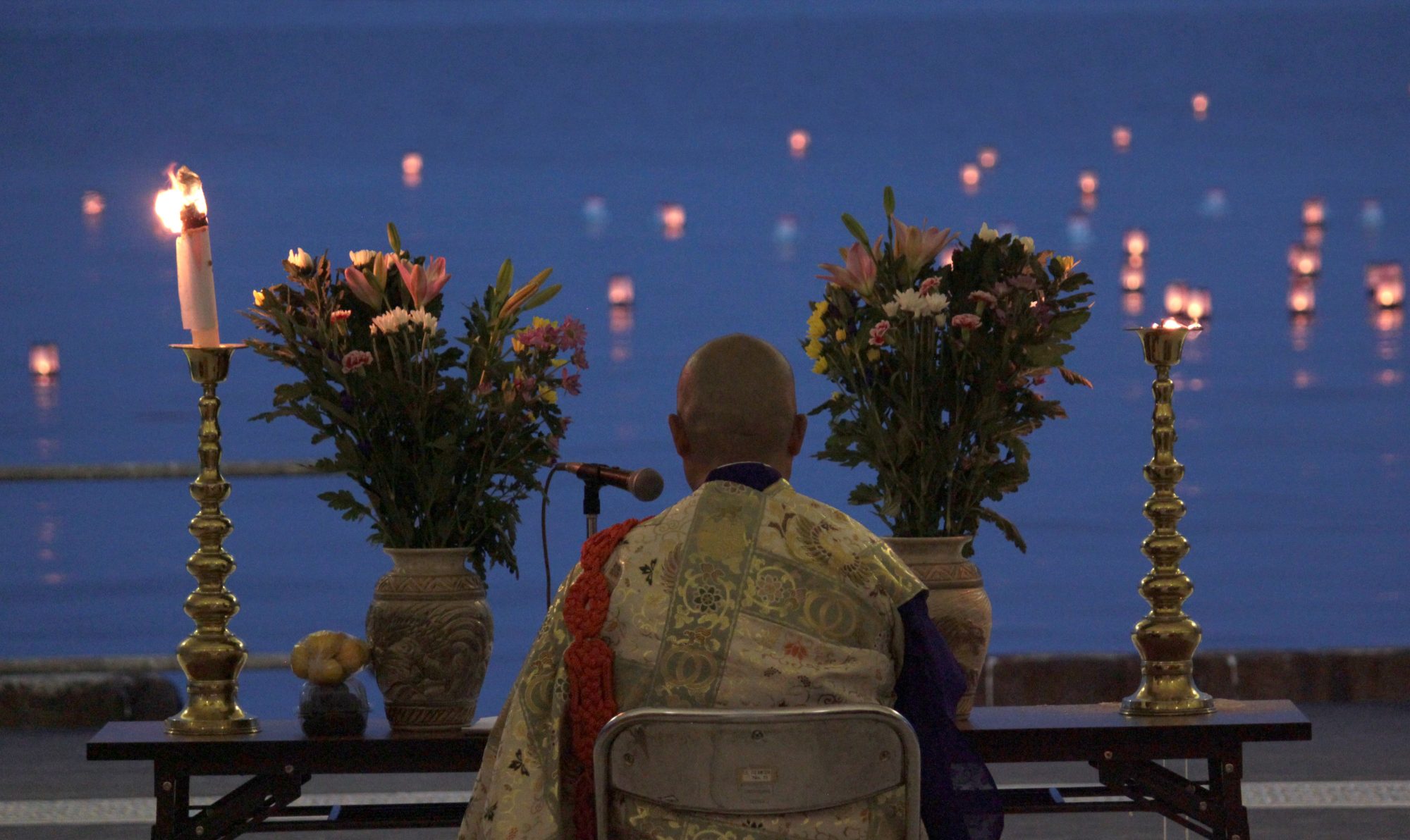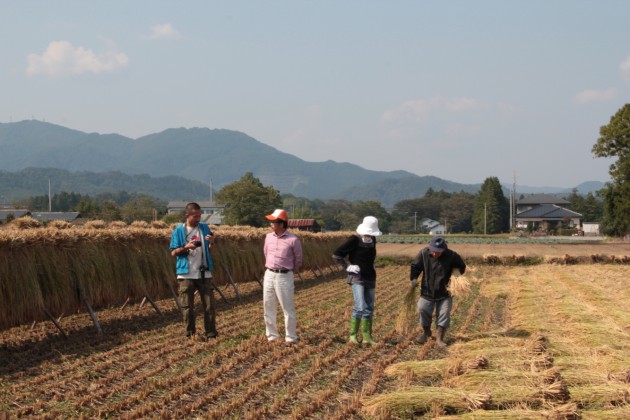

2013 greetings from Junko Kajino and Ed M. Koziarski of Homesick Blues Productions, the filmmakers behind the ongoing documentary Uncanny Terrain, about organic farmers in Fukushima, Japan fighting to hold onto their land and their livelihoods in the face of nuclear fallout.
We are well into editing footage from our first two years of production.
We are gearing up to return to Fukushima to capture the farmer’s ongoing struggle to build a healthier, more sustainable food supply, two years after the Great Japan Earthquake and Tsunami of 2011 and the meltdown of the Fukushima Daiichi Nuclear Power Plant.
Work-in-Progress Screenings
 Work-in-progress footage from Uncanny Terrain will be screened in the Urgenci 5th International Community Supported Agriculture Conference, Tuesday, Jan. 22 at Asilomar Conference Grounds, Pacific Grove, California, and the Northeast Organic Farming Association of New York’s 31st Annual Organic Farming and Gardening Conference, Friday, Jan. 25 at Saratoga Hilton & City Center, Saratoga Springs, New York.
Work-in-progress footage from Uncanny Terrain will be screened in the Urgenci 5th International Community Supported Agriculture Conference, Tuesday, Jan. 22 at Asilomar Conference Grounds, Pacific Grove, California, and the Northeast Organic Farming Association of New York’s 31st Annual Organic Farming and Gardening Conference, Friday, Jan. 25 at Saratoga Hilton & City Center, Saratoga Springs, New York.
Please check out our work at these valuable conferences if you’re in the area.
Update from Fukushima
Organic farmer Seiji Sugeno is fighting to keep alive his mountain village of Towa, whose economy is ravaged by the aftermath of the nuclear disaster two years ago. Sugeno is convinced that human contact is the key to overcoming public fears of Fukushima produce, so he travels Japan explaining Fukushima farmers’ efforts to reduce radioactive contamination and sustain the land their ancestors have cultivated for generations.
Sugeno’s 24-year-old daughter Mizuho has launched the Seed of Hope Company to welcome guests from across Japan and internationally to visit their idyllic Playing-with-Clouds Farm and experience the life their family is fighting to protect.
Masami Yoshizawa, who kept his 300 cows alive inside the nuclear evacuation zone in defiance of a government kill order, despite losing many cows to an outbreak of disease, has seen his herd grow to 350 with new births and the adoption of strays from neighboring farms. Possibly in retaliation for his outspoken activism and media presence, Yoshizawa lost his permit to enter the evacuation zone. The day before Yoshizawa and his team were set to give up and release the herd, he reversed course and set out to confront the officials who had denied his permit, and demand the right to continue caring for his cows.
As new disasters turn the eyes of the world and Japan away from Fukushima, Uncanny Terrain continues our journey with Yoshizawa and the Sugenos and the other farmers who struggle every day to find a way to live in tune with a natural environment compromised by manmade catastrophe.
Kartemquin Films’ Diverse Voices in Docs
 Uncanny Terrain codirector Junko Kajino has been invited to join Diverse Voices in Docs, a new program of pioneering Chicago documentary producers Kartemquin Films (Hoop Dreams, The Interrupters) and the Community Film Workshop of Chicago, designed to develop talent among Chicago’s minority nonfiction filmmakers. Diverse Voices in Docs is supported by the Joyce Foundation, The Academy for Motion Picture Arts & Sciences, and Kat Lei Productions.
Uncanny Terrain codirector Junko Kajino has been invited to join Diverse Voices in Docs, a new program of pioneering Chicago documentary producers Kartemquin Films (Hoop Dreams, The Interrupters) and the Community Film Workshop of Chicago, designed to develop talent among Chicago’s minority nonfiction filmmakers. Diverse Voices in Docs is supported by the Joyce Foundation, The Academy for Motion Picture Arts & Sciences, and Kat Lei Productions.
New Projects
We have launched two new documentary projects. One project follows two very different high school rap groups in Chicago’s West Side Austin neighborhood.
The other project explores one Chicagoan’s efforts to replace Syria’s embattled Assad regime with a fledgling democracy.
Donations Ongoing
Thank you to everyone whose contributions have allowed us to get this far. We continue to accept tax-deductible donations toward the ongoing production, post-production, and eventual release of Uncanny Terrain. Here’s how. We remain, as ever, deeply grateful for your support.
Thanks to Our Translators
We send our profound gratitude to our international team of volunteer translators, who have been invaluable to our editing process by producing English-language transcripts from hundreds of hours of Japanese-language footage.
Thank you to Meg Kajino, Eugene Kobayashi, Peter Arbaugh, Yo Shin, Noriko Hopkins, Kazari Getz Kikuchi, Hiroshi Yasuda, Alice Tallents, Ayaka Maekawa, Chris Watts, Hiroko Uenushi, Mari Kawade, Naoki Izumo, Priscilla Watson, Tomoko Nakano, and especially Miki Takada, who has translated 16 days worth of footage!
If you’re still working on a file, or I’ve left your name off this list, please let me know. There are still many files left to translate, so if you can help, or you know someone who can, please drop us a line or spread the word.
Our Previous Film
Our international psychological drama The First Breath of Tengan Rei is available via download, streaming, or DVD. Find it here.
Uncanny Terrain is supported in part by grants from the Illinois Arts Council and the Chicago Department of Cultural Affairs.
















































